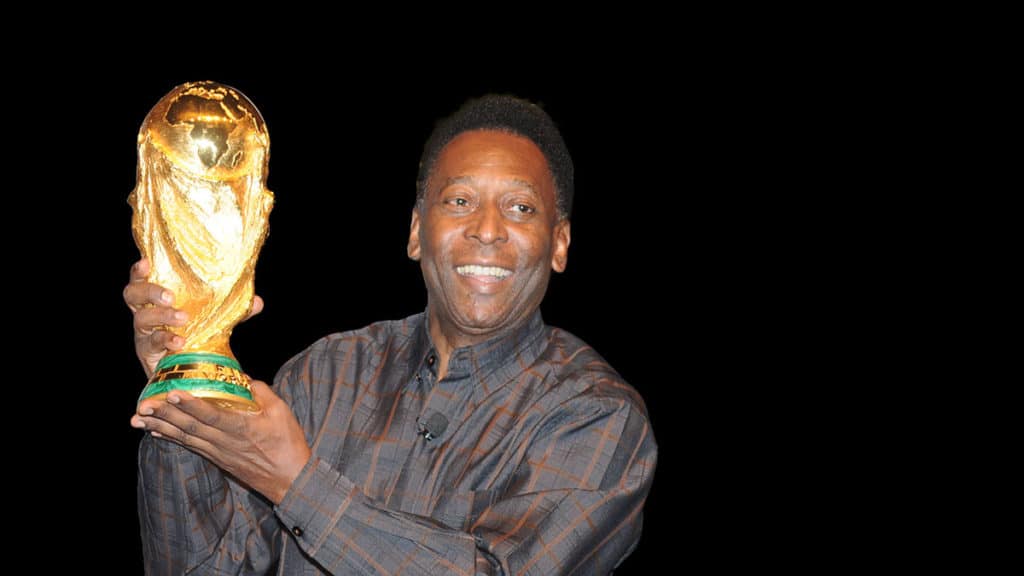
Pelé (1940-2022) was one of the greatest soccer players of all time (if not THE greatest), one of the great sportsmen of the 20th century, and a great humanitarian. His style was pure Brazilian. He popularized the expression, “The Beautiful Game,” and is remembered as a brilliant player who always played fair.
In New York, Pelé led the New York Cosmos from 1975 to their North American Soccer League (NASL) championship in 1977.
Ginga
The only player to win three World Cups, Pelé played with a style called “ginga.” The concept comes from capoeira, the Afro-Brazilian martial art dance. It basically means African spirit.
Brazil made it to the 1958 World Cup Sweden, when Pelé was 17. He was just a kid who had been playing professionally for one year. This was a time when the Europeans still ruled international soccer. The Brazil coach tried to force his team to play European style, but it broke the Brazilian team’s spirit.
There was a lot of pressure on Pelé. He was playing hurt. Finally, he decided to ignore the coach and play his own ginga style. The team recovered its spirit and became unbeatable. Péle scored a hat-trick (3 goals) to win the semifinal against France, and scored two goals in Brazil’s championship win over Sweden. He was the youngest player ever to win a World Cup.
The moral of the story is to be true to your self. You can’t be anybody else but you. Since the Colonial Era, the European Diaspora has tried to erase everyone else’s culture. But your self can’t be erased, and when you embrace it, you shine like a star.
Pelé
Edson Arantes do Nascimento was born in Tres Coracoes in Minas Gerais, Brazil on October 23, 1940.
He was raised in Bauru, so poor that he played soccer with a rolled-up sock instead of a ball. His school buddies nicknamed him Pelé, though nobody knows why. He led the Bauru Athletic Club juniors to three state youth championships.
Pelé turned professional for Santos in 1956 at age 15. He led Santos to many championships until 1974. He won the 1970 World Cup Mexico with what is considered one of the greatest soccer teams in history.
A Great Humanitarian
Pelé’s talent and character lifted him from talented sportsman to global brand. Even people who don’t know soccer, know Pelé.
Having grown up poor, he became a champion of the disadvantaged. He was a UN ambassador for ecology and the environment (a very Brazilian context), and a UNESCO goodwill ambassador. He became Brazil’s sports minister in 1995. This is what is supposed to happen when people are very successful. The best ones give back to their communities and he did.
After a long illness, Pelé passed away in São Paulo on December 29, 2022. What a great human being. Go with ginga!
